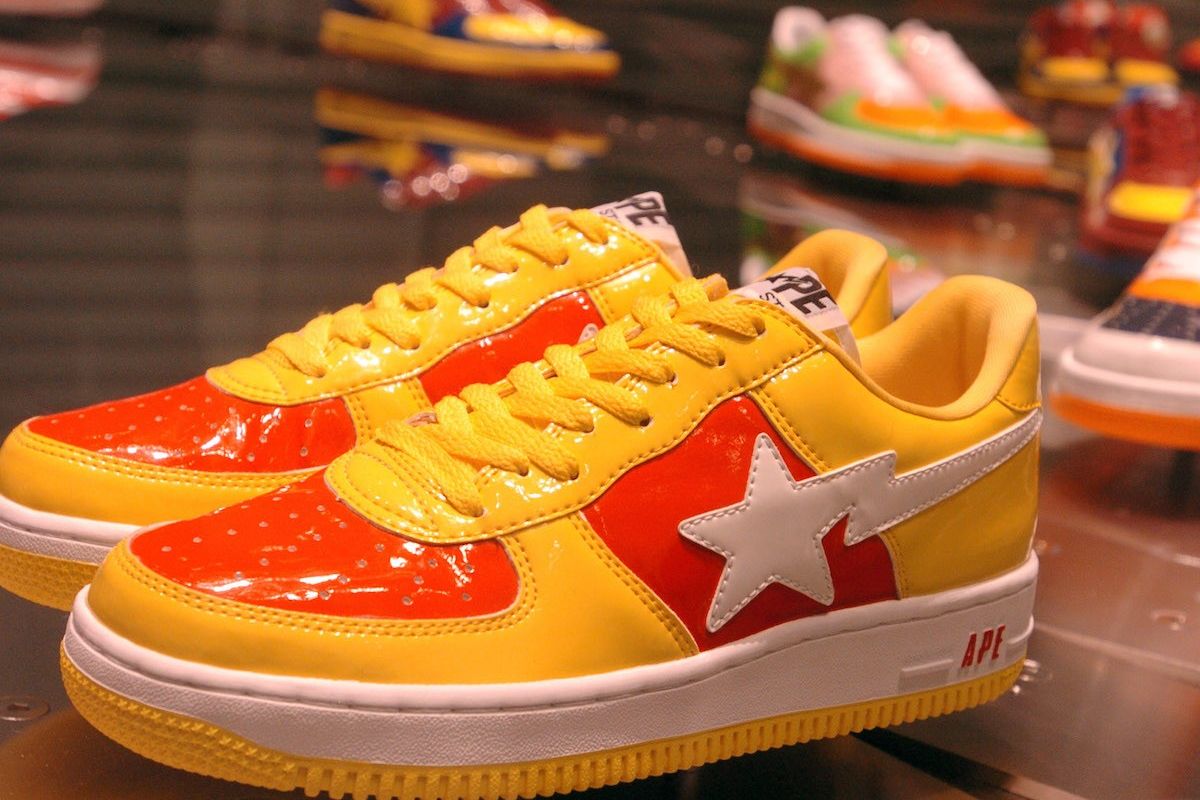
BAPE sneaker
Photo Credit: Theo Wargo/WireImage for Bathing Ape/Nowhere CO.,LTD)

Nike is taking legal action against BAPE, also known as A Bathing Ape. On Wednesday (January 25), news broke that Nike is alleging that BAPE has copied some of the footwear company's most iconic designs, including the Air Force 1, Dunks and Air Jordans.
In court documents, Nike claims that A Bathing Ape is a “copyist whose infringements have recently grown to become a significant danger to Nike’s rights," adding that the Japanese label's “current footwear business revolves around copying Nike’s iconic designs.” Sneaker models listed in mockup papers include the BAPE STA Mid for resembling the the Air Force 1 Mid; the COURT STA High for the Air Jordan 1 High; the COURT STA for the Air Jordan 1 Low and more.
\u201cWow... Nike just sued Bape \ud83d\udc40 Filed 1/25/2023 #nike #bape #lawsuit #TM #AF1 #AJ1\u201d— Sneaker & Streetwear Legal Services\u2120 (@Sneaker & Streetwear Legal Services\u2120) 1674693792
In the same documents, Nike's lawyers have stated that "BAPE’s copying is and always has been unacceptable to Nike, and because BAPE’s infringements have recently grown to become a significant danger to Nike’s rights, Nike must act now." This wouldn't be the first copyright infringement battle that Nike has sought towards another fashion company; in August, Nike settled a trade dress infringement lawsuit against designer John Geiger over lookalike Air Force 1s.
\u201c@JohnGeiger_ \ud83e\udd1d @nike\u201d— John Geiger (@John Geiger) 1661890115
\u201cNIKE, INC. v. WARREN LOTAS AND WARREN LOTAS, LLC.\u201d— SAINT (@SAINT) 1602775391
First launched in 2005, A Bathing Ape has been a premier footwear company for rap acts including Lil Wayne, N.E.R.D., Kid Cudi, Big Sean and more, continuing to to release their alleged trademark-infringing sneakers for 15 years.
Neither brand has publicly commented on the lawsuit, but Nike added in their documents that A Bathing Ape “refused” when the company notified the Japanese label of its infringements and “asked it to stop.”